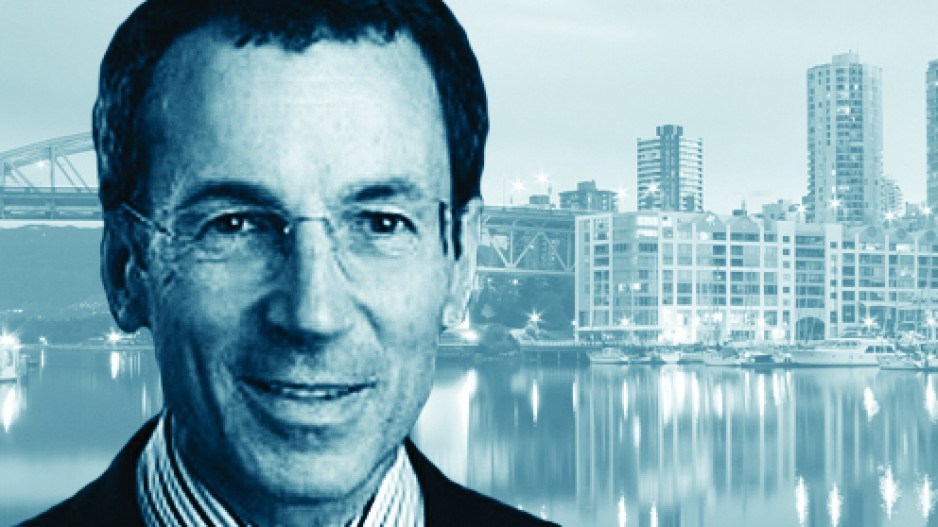What would happen to B.C.’s real estate industry … if the world’s population and consequent in-migration to B.C. miraculously, or tragically, dropped?
When I first learned that West Vancouver’s population was declining, amid what I thought was the inexorable arrival of 35,000 new people in the Lower Mainland each year, I enjoyed a little inside cheer: West Van has arrived at where the world must go: an end to population growth. (This is not just West Van, by the way: Port Moody, Penticton, Terrace and other B.C. municipalities also shrank between 2015 and 2016.)
I’ve been reading Alan Weisman’s book Countdown: Our Last, Best Hope for a Future on Earth? a chilling look at how the world is coping – or not –with the unavoidable biological fact (the non-alternative kind) that every species that outgrows its resource base always suffers a population crash, sometimes one that is fatal to the entire species. The Earth supports seven-billion-plus humans today, and we’re headed for 11 billion to 15 billion before today’s slowdown in birth rates makes an impact. But we’re already overshooting the Earth’s capacity to support us. If we all enjoyed North Shore standards of living and wanted to sustain Earth’s resources at a renewable level, biologists estimate that the world population would have to be about 1.5 billion.
David Suzuki reminds us that in 1992, a majority of then-living Nobel Prize winners and more than 1,700 leading scientists worldwide signed a document called World Scientists’ Warning to Humanity, warning us that “a great change in our stewardship of the Earth and life on it is required, if vast human misery is to be avoided and our global home on this planet is not to be irretrievably mutilated.”
Among the changes needed: “We must stabilize population [through] improved social and economic conditions, and the adoption of effective, voluntary family planning.”
The burning need to slow down world population growth fits perfectly with the desire of West Vancouver residents – and possibly the majority in the Lower Mainland – to pull up the drawbridge and say, “Enough already: I’m on board, shove off.” If people stopped crowding in here, we wouldn’t have all that damn traffic congestion; there’d be no need to build new dams and wider highways, no need to pave our farmland for new megamalls. We could preserve the character of every neighbourhood just as it is. Cranes, be gone! Stability at last! No need to spend more on transit! Taxes could freeze!
And it could be that the much-touted need for 400,000 immigrants to fill jobs and look after old people will soon be unnecessary as automation and robotic job displacement steal those jobs forever.
If only it were that simple. One acquaintance who resents the onslaught of population growth and the pressure for change in his single-family neighbourhood (think of RS-1 zoning as socialism for the rich) thinks the solution is simple: just stop building new homes. People will stop coming here because there won’t be anywhere for them to live.
“Density doesn’t have to be our destiny,” he says from his safe perch in a paid-off Shaughnessy home that goes up in value several thousand dollars a day. Not for him the worry that while we wait for that mythical drawbridge, people will keep coming here anyway and desperately bid up the prices of existing housing until we’ve levelled the playground exclusively for global plutocrats. Luckily his visits to the Vancouver Club keep him away from the Downtown Eastside, ground zero for people who have found their way here, can’t afford any housing even at today’s rates and are killing themselves on the streets in record numbers.
And what would happen to B.C.’s real estate industry – far and away the biggest economic engine in the province – if the world’s population and consequent in-migration to B.C. miraculously, or tragically, dropped? Our economy still depends almost entirely on a growing population consuming growing amounts of natural resources, eco-footprints be damned.
No worry. West Van has an answer for that. Keep building bigger houses but don’t put any people in them. Simple.
Peter Ladner ([email protected]) is a co-founder of Business in Vancouver. He is a former Vancouver city councillor and former fellow at the SFU Centre for Dialogue. He is the author of The Urban Food Revolution.




